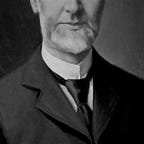What Anna Karenina Really Tells Us About the Paddy Jackson Trial
The Paddy Jackson case has captured the attention of Ireland while gaining nary a mention in the British press. The trial of two professional rugby players and their two friends for gang rape has displayed the fault lines of gender and class which fracture Northern Irish society. Depending on your point of view, the woman who accused them was either a liar or hero. In summing up, the lawyer for one of the accused in the Ulster Rugby rape case made a comparison with Tolstoy’s Anna Karenina to throw doubt on the accuser’s character. “Anna is not the heroine of the book,” he stated, “but a woman who cheats on her husband and that, in order to justify her affair, denigrates her husband who was a perfectly decent human being, and then hides behind the impenetrable shame of self-deception.”
To read Anna as bad and her husband, Alexei Karenin, as good is the sort of crude moralism that Tolstoy avoided in his work. Anna is not an evil and calculated schemer but rather a flawed character who at one moment holds the moral high ground and the next concedes it. Her infidelity shows the myriad ways love and sex can destroy rather than restore. Her infidelity, most of all, demonstrates the disadvantages and limitations of being a woman. Of the many men in the novel who are unfaithful, none suffer as awful a fate as Anna. Indeed, the reader knows Anna is doomed from the very first chapter as, shortly after first meeting the man she will have the affair with, she witnesses a guard crushed to death by a train. “It’s an omen of evil,” she says, on the verge of tears. As her own eventual death under the wheels of a train demonstrates, she is never wholly in control of her actions. Anna represents the limits of choice in the face of circumstance. To take the side of the Alexei rather than Anna, therefore, is to side with the very societal structures that Tolstoy was showing up as hypocritical. It is to disbelieve women and overlook the hardship of living as one.
The Paddy Jackson trial throws similar sexual hypocrisies into sharp relief. The woman spent eight days on the stand, often visibly upset. Five male barristers argued over her evidence and motivations. The captain of the Irish men’s rugby team sat in the public gallery. Her underwear was shown in court. CCTV was played of her touching the arms of Northern Irish footballers. She was accused of “teasing” Jackson. There was blood on the sheets and a laceration to the inside of her vagina. The jury heard the woman did not scream or resist. “There were a lot of middle-class girls downstairs”, Stuart Olding’s barrister told the jury, “they weren’t going to tolerate a rape or anything like that.” She cried in the taxi home. The morning after, Olding sent a WhatsApp message saying “we are all top shaggers … it was like a merry go round at the carnival”. Jackson’s lawyer claimed she only took the morning-after pill to look like a “classic rape victim”. The jury were told Jackson, McIlroy and Harrison all attended Methody. On social media, speculation was rife about the woman’s identity. At Irish rugby matches, chants of “Free Paddy” were heard. On Twitter, a woman claimed Paddy Jackson pinched her bum four years ago. Bristol Rugby was rumoured to be interested in recruiting Jackson if he was acquitted.
Undoubtedly, the trial had something Tolstoyian about it. The participants all come from the protestant middle-class, the North of Ireland aristocracy. And, among this class, the red-uniformed Ulster Rugby players appear just as charismatic and dashing as the cavalry men of the Russian Army. The outward respectability of these men is undone as we learn, like Stiva Oblonsky, they drink too much vodka and cheat on their partners. Then, there was the evil omen. Twelve days before the accuser states she was raped by Paddy Jackson, the woman texted a friend: “Nine out of ten rapes go unreported.’’ Her friend responded “just got to find a way to blackmail or stab them’’. After she was raped, the woman told a friend she would not go to the police: “no it would be my word against theirs. Ulster Rugby will vouch for their good character and I’ll look like a stupid little girl”. Just as it was for Anna Karenina, the woman’s fate was sealed long before she stepped into the witness box.
One of the central themes in Anna Karenina is the perils of modernisation. By pursuing the sexual freedom offered by the era, Anna is betrayed and exiled by her friends and aristocratic society. Perhaps, then, Blane McIlroy’s lawyer was not so far off the mark with his comparison. Like Anna, the woman at the heart of this case was martyred by a society unable to comprehend its own hypocrisy and misogyny.
